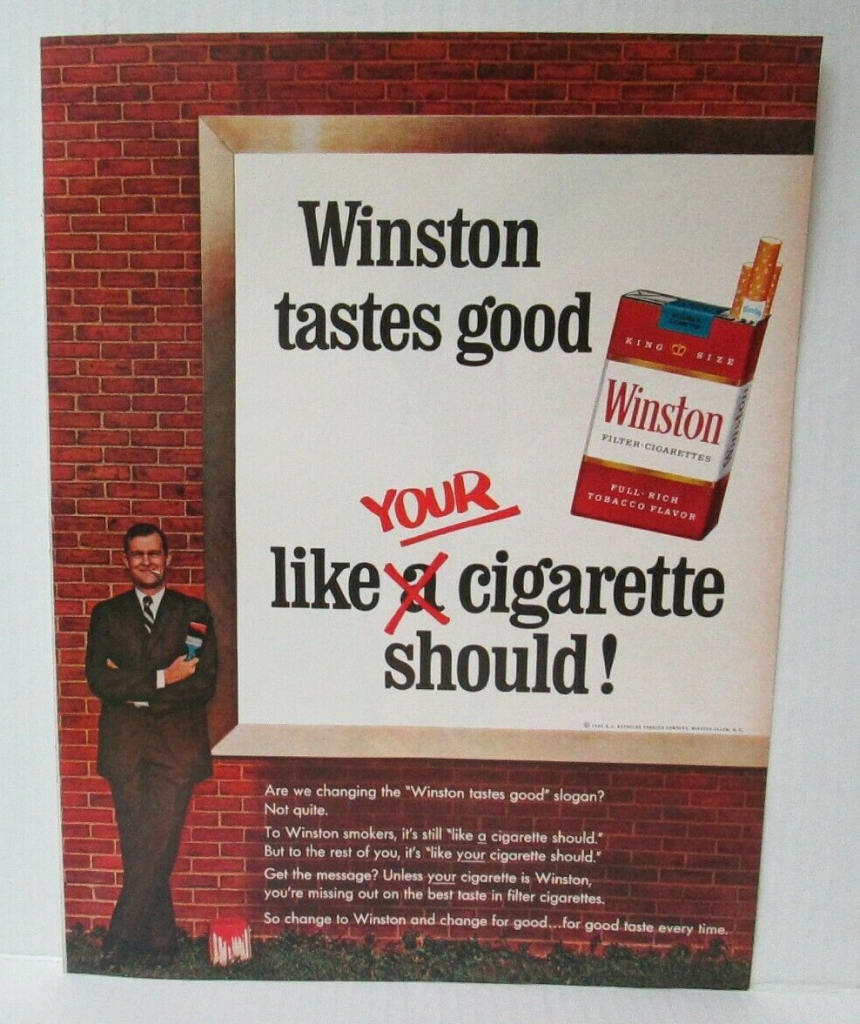Winston, a name synonymous with cigarettes in the 20th century, played a pivotal role in shaping the tobacco industry. Launched in 1954 by the R.J. Reynolds Tobacco Company, Winston quickly became a top contender in the competitive world of cigarettes. Known for its iconic “Winston tastes good like a cigarette should” slogan, the brand’s impact was significant in product development and marketing innovation. This article will examine Winston’s historical contributions to the tobacco industry, its marketing strategies, and how it became a cultural icon.

The Birth of Winston
Winston made its debut at a time when the tabaco industry was rapidly expanding. The brand was named after Winston-Salem, North Carolina, where R.J. Reynolds was based. With a smooth taste and unique marketing strategy, Winston positioned itself as a high-quality alternative to traditional tobacco flavors, emphasizing its mildness and consistency. Unlike many competitors, Winston promised a smoother smoking experience, largely thanks to its introduction of the Filtro Winston, which was marketed as providing a milder, less harsh cigarette.
Winston’s Iconic Advertising Campaigns
Winston’s advertising campaigns played a central role in establishing its presence in the market. The “Winston tastes good like a cigarette should” slogan became one of the most recognized marketing phrases in the tobacco industry. This catchy and memorable line resonated with consumers, making Winston a household name.
- Sponsorships: Winston capitalized on sponsorships, particularly in sports. The brand sponsored major events like NASCAR y motorsports, reinforcing its association with masculinity, speed, and power. The NASCAR partnership, in particular, allowed Winston to tap into a demographic that valued performance and strength, making it an ideal match.
- Celebrity Endorsements: Like many tobacco brands, Winston used celebrity endorsements to enhance its appeal further. Hollywood stars and athletes were often seen in advertisements, creating an aspirational image of the brand. This celebrity association helped elevate Winston’s status as a premium cigarette choice.

Winston and Product Innovation
Winston was also at the forefront of product development. It was one of the first to introduce the “Winston Filter”, which promised a smoother smoke. This innovation came at a time when filtered cigarettes were gaining traction, with consumers seeking less harsh smoking experiences.
- Menthol Variants: In response to consumer preferences, Winston introduced menthol variants, tapping into the growing demand for mentholated cigarettes. This move allowed the brand to diversify its offerings and reach a wider audience.
- Light Cigarettes: As health concerns over smoking grew, Winston responded by introducing light cigarettes. These products aimed to cater to smokers looking for lower-tar options, tapping into the health-conscious market emerging in the late 20th century.

Winston’s Impact on Smoking Culture
Winston‘s influence extended beyond being a cigarette brand—it became a part of American culture. Throughout the 1960s and 1970s, Winston was featured in films, TV shows, and advertisements, often portrayed as the cigarette of choice for the American everyman. The brand’s association with motorsports and its use of bold advertising campaigns made it one of the most iconic names in the cigarette industry.
However, as awareness of the health risks associated with smoking grew in the 1980s and 1990s, Winston, like all tobacco companies, faced increased regulation and public scrutiny. The U.S. Surgeon General’s report on the dangers of smoking in the 1960s had already begun to shift public opinion. Winston’s appeal started to wane with time, particularly among health-conscious consumers.
Winston’s Evolution in the Modern Market
Winston has had to evolve in the face of declining cigarette sales and growing health concerns. The company has embraced alternative products como cigarrillos electrónicos y vaping devices, attempting to stay relevant in a market that is increasingly focused on harm reduction. Despite these efforts, Winston’s legacy as one of the most significant players in the history of the tobacco industry remains undeniable.
Conclusión
Winston’s role in the tobacco industry is a testament to the power of marketing, innovation, and brand identity. Through clever advertising, product innovation, and an understanding of consumer preferences, Winston became a cultural icon in the 20th century. Though the brand faces challenges in today’s health-conscious world, its influence on the tobacco industry and American culture remains significant. Winston‘s evolution and impact offer valuable insights into the ever-changing landscape of the tobacco industry.
